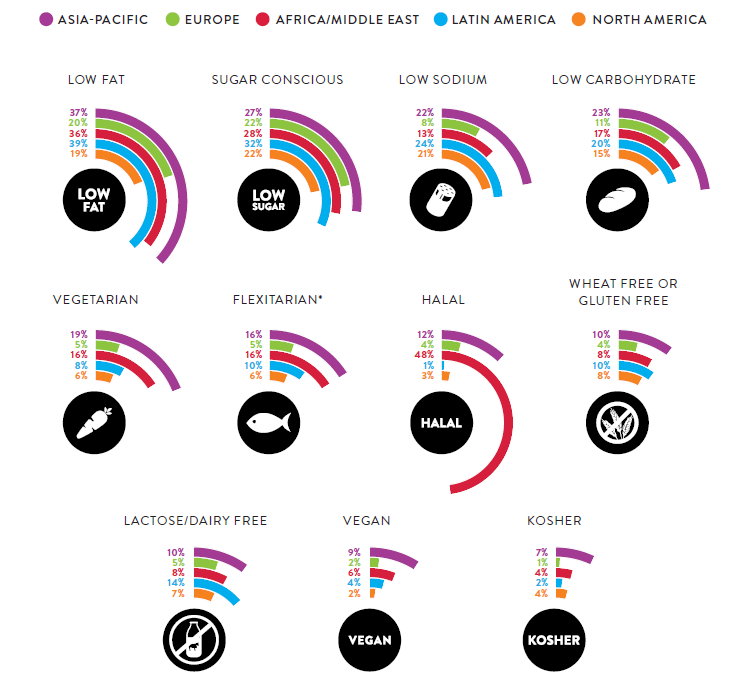Almost anyone you ask will tell you that eating a healthful diet is important—a sentiment that isn’t new. So why is there a seemingly heightened focus on clean eating? A contributing factor is the convergence of several macroenvironmental forces:
- Global graying: The world’s population is aging rapidly (though at a slower rate in some parts of the world, including Africa and parts of Asia, Latin America, and the Caribbean) and living longer.
- Chronically ailing: Chronic diseases, including cardiovascular disease, Type 2 diabetes, respiratory diseases, and cancer, are the leading causes of death and disability worldwide, and incidences are on the rise globally.
- Food as medicine: Consumers are taking a more active role in their health care, which includes following proper nutrition guidelines to prevent or manage many health issues.
- Educated and connected consumers: Technology gives consumers access to a wealth of health information and products they can use to exercise greater control over their health.
The NielsenIQ Global Health and Ingredient-Sentiment Survey polled more than 30,000 online respondents in 63 countries to understand how consumers feel about the foods and beverages available on store shelves. We examined respondents’ self-reported dietary restrictions, including food allergies or intolerances, and the extent to which current offerings are meeting their needs. We also looked at consumer sentiment across 22 different ingredients to uncover what consumers want on store shelves.
Restricted dietary requirements around the globe
Nearly two-thirds of global respondents (64%) say they follow a diet that limits or prohibits consumption of some foods or ingredients, and the rates are even higher in certain regions.
Percentage who say they follow a special diet that limits or restricts specified foods or ingredients





